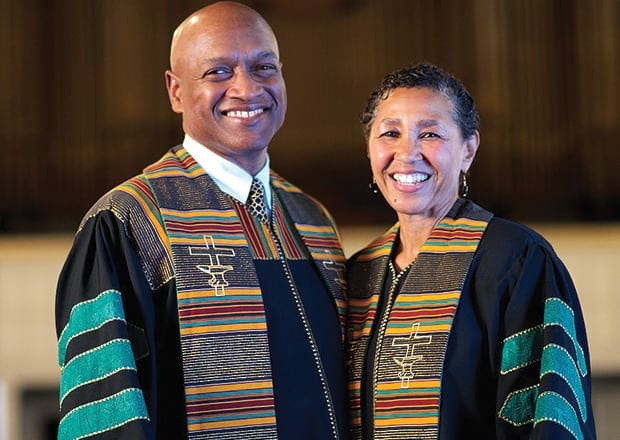
Taking part in a clinical trial is voluntary. But participation has historically been highly skewed to include mostly whites, men and those of higher income. Minorities, the elderly, women and those from rural areas are largely absent from these trials.
Will it work for you?
Make sure you understand and are comfortable with a clinical trial if offered to you. A research team will oversee the study. Ask a few questions …
- What is the purpose of the study?
- Has it been tested before? If so, what were the results?
- Who is sponsoring the study?
- What tests and procedures are involved?
- What are the possible risks, side effects and benefits?
- How might this trial affect my daily life?
- How long will the trial last?
- Will hospitalization be required?
- How often will I have to visit the hospital or clinic?
- Who will pay for the experimental treatment?
- Will I be reimbursed for other expenses?
- What type of long-term follow-up care is part of this study?
- Will results of the trials be provided to me?
- Who will be in charge of my care?
- If someone else in the study has an unexpected side effect, will you tell me?
- Can I withdraw from the study?
- Is it possible that I will be given a placebo instead of the drug under study?
Source: National Institutes of Health
There are reasons for the gap, chief among them the higher degree of mistrust among African Americans. It wasn’t that long ago in 1997 when President Bill Clinton apologized for the federal government’s role in the Tuskegee Experiment. Started in 1932, the 40-year experiment enlisted mostly illiterate sharecroppers in Alabama to participate in what they were told was a study on “bad blood.”
In reality, the study was on the ravages of syphilis, and the men were left to suffer its consequences even when a suitable treatment became available. Unfortunately, the lingering mistrust still looms large.
But other barriers exist. Insurance may not pay for the study; the requirements can be time consuming and demand time away from work; transportation may not be available; and language differences present a problem.
For many, it is merely lack of awareness ─ people may not know that participation in a clinical trial is possible.
Part of the problem lies with the medical profession itself. Primary care physicians and those not affiliated with research institutions may not be aware of patient eligibility for clinical trials. Some physicians simply do not make referrals. More significantly, minority investigators, who may be more successful in attracting minority volunteers, are underrepresented in research.
Programs are in the works to increase participation by minorities and women. On a national level, the National Institutes of Health now requires researchers to design strategies to include underrepresented groups. Medicare authorized payment of routine costs back in 2000 for Medicare recipients who participate in clinical trials.
Yet, even years after the implementation of these efforts, a report by researchers at University of California, Davis found that fewer than 5 percent of trials participants are non-white. The percentage is even lower for cancer research. While the incidence of cancer is highest among minorities, their participation in trials for cancer is only 1.3 percent.
For the record, anyone can participate in a clinical trial if he or she meets the specific inclusion criteria, such as age, gender, extent or type of disease, previous treatment and other medical conditions.
The potential benefits are enormous: a person can play a more active role in his or her health care; have access to new treatment before it is made available to the general public; and obtain closely monitored expert medical care. And they can make a major contribution to science in order to help others.
But there are obvious risks as well. Unpleasant side effects are always a possibility. The experimental treatment may not be effective.
Clinical trials are conducted in four sequential phases. Phase I trials test the safety of a new treatment, while Phase II trials test the effectiveness of that treatment.
Looking for Studies on Alzheimer’s Disease?
- A4 study for Alzheimer’s prevention – 617-278-0379
- Harvard Aging Brain Study – 617-643-0143
- Memory & Aging Study – 617-643-5200
- Center for Alzheimer Research and Treatment – 617-732-808
- National Institute on Aging ADEAR Center – 800-438-4380
If the results look promising, Phase III trials then determine whether the experimental treatment is better than the current standard treatment. At its completion, the research team can request approval by the Federal Food and Drug Administration to make the treatment being tested available to the public.
In some instances, a Phase IV is added to continue to monitor the long-term effect on people who use the experimental treatment even after federal approval.
Safety measures
Stringent guidelines for clinical trials are in place to protect the safety of volunteers. The Data Safety Monitoring Board oversees safety data and warns researchers and participants if they notice a trend towards excessive risk. The research plan ─ or protocol ─ is reviewed by the federally mandated Institutional Review Board (IRB), a group of health professionals, statisticians and laypersons.
The IRB monitors the progress of the trials, checks for side effects, and can request periodic modifications. Most important, the board can terminate the trial if preliminary results are not satisfactory.
Without clinical trials, advances in medicine could not be made. Today’s standard treatments are yesterday’s clinical trials. For instance, women who are now candidates for breast-conserving treatment for breast cancer were once instead subjected to complete removal of the breast.
The egregiousness of the Tuskegee study is not debatable. Much damage was done. But not participating in clinical trials could be equally damaging. When research is conducted on whites only, medical experts argue, doctors are forced to assume that the results are transferable to all people. But that is not always a correct assumption.
Everyone should be included in a clinical trial. When a group is excluded, that group loses.







